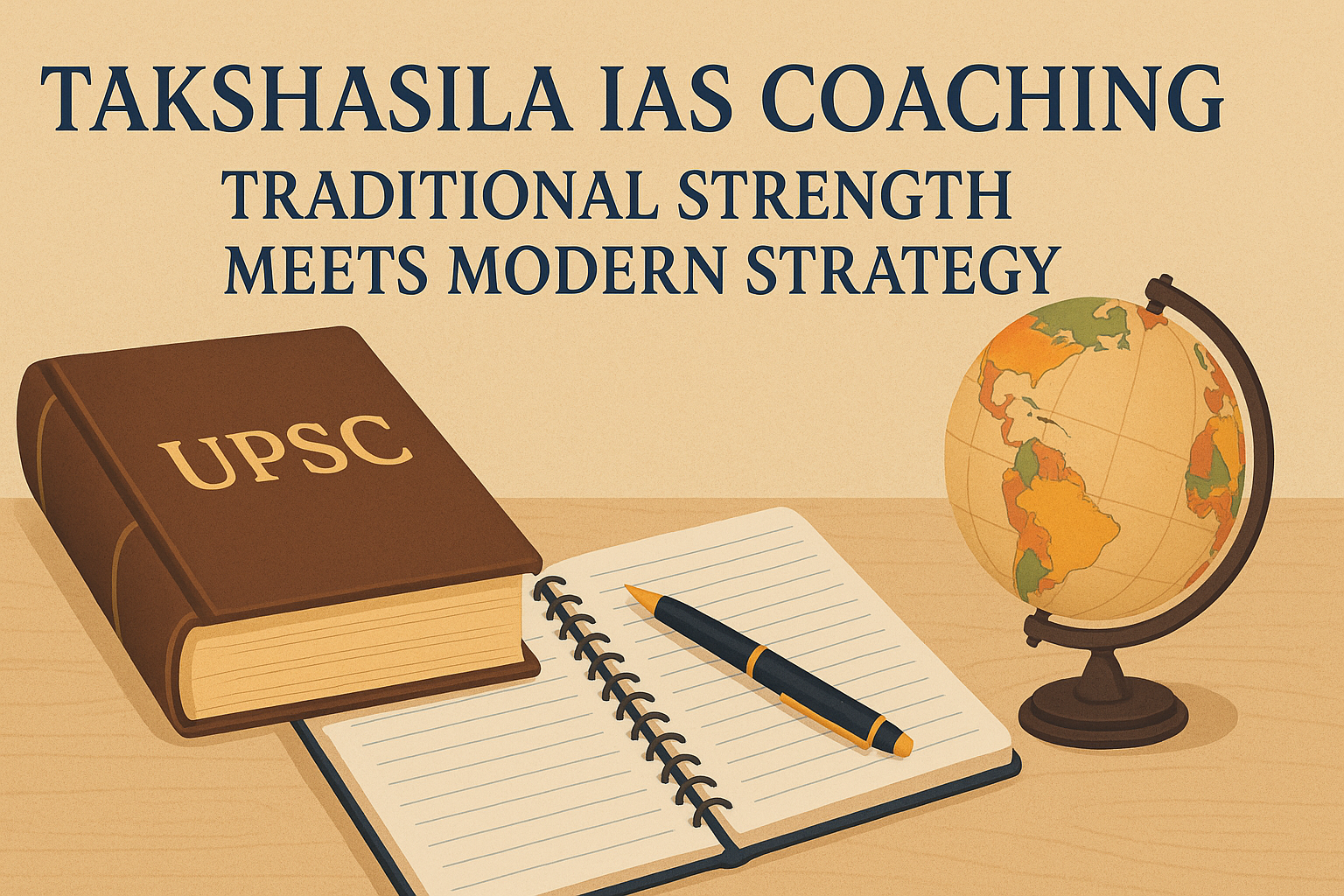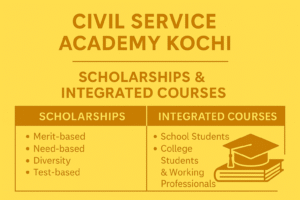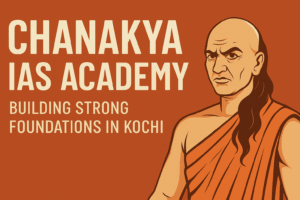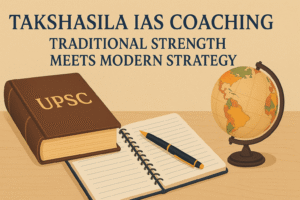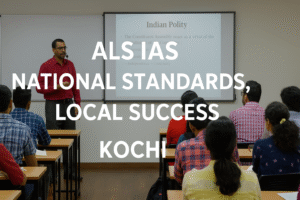Why Takshasila IAS Coaching?
UPSC preparation is about discipline, continuity, and adaptability. Over the years, Takshasila IAS Coaching has built its reputation by balancing tradition with innovation. While its foundation lies in rigorous classical methods—deep subject clarity, disciplined practice, and syllabus mapping—it simultaneously integrates modern strategies like AI-based test analysis, digital learning, and adaptive revision models.
This dual approach ensures that aspirants are not just exam-ready but also develop the temperament of future administrators.
The Academy’s Core Strengths
1. Traditional Foundations
Focus on conceptual depth from NCERT to advanced texts
Strong emphasis on answer-writing craft (structure, clarity, flow)
Ethics and essay training rooted in philosophy, history, and governance traditions
Syllabus discipline: every class linked directly to UPSC requirements
2. Modern Strategies
Data-driven test analysis (accuracy vs. speed, topic-wise performance)
Digital classrooms & recorded backups for flexible learning
Current Affairs Labs: daily briefs, weekly dossiers, and monthly issue compilations
Integration of AI-powered quizzes and adaptive practice modules
Mock interviews using real-time panels and digital feedback loops
Courses Offered
1. Foundation Program (12–18 months)
Covers GS Prelims + GS Mains + CSAT + Essay
NCERT to advanced transition with PYQ-based demand recognition
Daily Answer Writing Practice (DAW) with structured feedback
2. Prelims-cum-Mains Integrated Program
Streamlined calendar: no duplication of effort
Weekly tests + monthly full-length mocks
Revision sprints before Prelims and Mains
3. Mains Enrichment Program
GS I–IV and Essay enhancement
Case study workshops for Ethics (GS-IV)
Thematic essay-building sessions with feedback
4. Optional Subject Mentorship
Current coverage includes popular Optionals like Public Administration, History, Sociology, Geography, and Political Science
Source sheets: curated notes from books, reports, journals, and government documents
Optional test series with individualized evaluation
5. Prelims & Mains Test Series
UPSC-level difficulty, progressive mock sets
Analytics: rank sheet, heat-maps, question-type analysis
Personalized remedial strategies
6. Interview Guidance (Personality Test)
DAF decoding workshops
Mock interviews with retired civil servants and subject experts
Feedback on communication, situational handling, and structured thinking
Pedagogy & Study Plans
Pedagogical Model:
Concept First → conceptual clarity before moving to memorization
Practice Next → answer-writing, quizzes, case studies from early stages
Feedback Always → mentor comments, test discussions, peer reviews
Revision Repeated → micro-revision (weekly) + macro-revision (monthly)
Integration → linking Prelims, Mains, and Interview into one cycle
Sample 12-Month Plan (for first-timers):
Months 1–3: NCERT + GS basics + CSAT foundation
Months 4–6: Advanced GS + Prelims quizzes + DAW
Months 7–9: Full GS coverage + Essay + Mains answer practice
Months 10–12: Prelims sprint + full-length mocks + post-Prelims Mains focus
Modern Strategy in Action
Digital Notes & Smart Summaries: Quick revision PDFs and flashcards
Adaptive Quizzes: AI-based question selection targeting weak zones
Peer Review Platforms: Collaborative answer-writing with feedback exchange
Current Affairs Integration: From newspapers, PIB, PRS, RSTV, and Yojana
Analytics Dashboards: Track performance, consistency, and accuracy trends
Student-Centric Features
Mentorship Hours: one-to-one guidance on progress and doubt resolution
Study Circles: peer discussions and mini-revision groups
Motivation & Counseling: to manage exam stress and maintain consistency
Hybrid Mode: classroom + online + recorded backups for working professionals
Admissions & Scholarships
Admissions: through counselling and orientation sessions
Scholarships: based on merit tests, need-based, or special categories
Installment facility available for long-duration programs
Always confirm batch dates, optional subjects, and scholarship availability directly with the institute.
Why Choose Takshasila IAS Coaching?
Legacy of traditional depth + modern precision tools
Integrated curriculum ensuring no duplication of effort
Focus on answer-writing discipline from Day 1
Adaptive test series for self-discovery and improvement
Mentorship-driven ecosystem—personalized feedback and planning
Frequently Asked Questions (FAQ)
1. Is Takshasila IAS Coaching beginner-friendly?
Yes. The foundation courses start from NCERT basics and gradually build up to advanced levels.
2. Does the academy offer online classes?
Yes, hybrid options are available—live online, offline, and recorded sessions.
3. How important is the test series?
Crucial. It builds time management, coverage discipline, and question sense, with analytics for improvement.
4. What Optional subjects are available?
Popular Optionals like Public Administration, Sociology, History, Political Science, and Geography are usually offered.
5. How does Takshasila handle Current Affairs?
Through structured daily briefs, weekly compilations, and monthly digests integrated into GS and Essay preparation.
6. Is there Interview preparation support?
Yes, with DAF workshops, panel mocks, and individual feedback sessions.
7. Can working professionals join?
Yes. The hybrid mode with weekend-heavy schedules and recordings suits working aspirants.
8. What is the ideal preparation time?
First-timers usually need 12–14 months, while repeaters with prior knowledge may need 6–9 months.
9. Does the academy help with stress management?
Yes. Counseling sessions and mentor interactions focus on mental resilience and consistency.
10. How do I apply for scholarships?
Scholarships are offered through merit tests and counselling—check current cycles with the centre.

